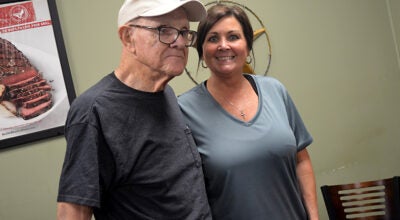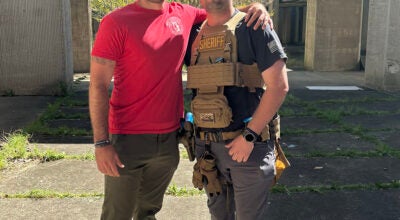Council: ‘Sales tax only option’
Published 12:00 am Friday, January 15, 2010
As the city of Troy takes over operations of Troy Regional Medical Center today, residents can prepare to pay a little extra on all their purchases soon after.
Beginning March 1, those who shop in Troy will pay an additional penny on all their purchases, taking the total sales tax from 8 percent to 9 percent in order to fund this endeavor. That total includes state and county sales taxes, on top of the soon to be 3 percent city sales tax.
To put in perspective, someone who eats out for lunch three times a week at $7 a meal would pay an additional $10.92 year in sales tax.
This is the first time since 1978 the sales tax has been increased in Troy, but it’s not the first time a sales tax has been added while the city is purchasing the hospital.
“There was discussion about the hospital in 1978, but there’s no reference in the minutes that the tax was used for the hospital,” said Troy City Clerk Alton Starling.
Mayor Jimmy Lunsford said this 1-cent sales tax is not earmarked for the hospital, but he said that is strictly what the tax is for.
“The one we’re putting on is for the hospital, and we fully intend to direct all proceeds toward it,” Lunsford said.
On average, the city of Troy has collected around $5.5 million each year for the last five years on the 2-cent sales tax.
That means the city could potentially make around $2.7 million on an additional cent, totaling $8.2 million a year.
Lunsford estimates it will cost around $2.2 million to operate the hospital each month, but he said he believes it will not take too long to have the hospital operating self-sufficiently.
“Our goal is that we would not even need all the revenue of the 1-cent sales tax,” Lunsford said.
“We could get the hospital operating to a point within a year where there wouldn’t need to be a subsidy for the hospital. It’s going to take some time to get there, so it’s going to take some money to get there.”
Lunsford said initial costs should be reimbursed once the city establishes its Medicare, Medicaid and insurance payments set to come to the hospital under new ownership.
In the meantime, however, he said implementing a 1-cent sales tax was a necessary measure to keep the hospital doors open.
With the city already working to make payments on an $11.5 million real estate purchase of the hospital, Lunsford said the sales tax not only will help fund operation costs but this cost as well.
“Without that tax, we can’t go and establish a line of credit. They have to see a revenue in the event the hospital doesn’t make money,” Lunsford said. “This will give us the credit worthiness to borrow the line of credit until we can start getting our reimbursements back in.”
This line of credit, approved by the city council Tuesday, can be issued in the amount of up to $6 million to help the city get started in the hospital business.
The city of Troy owned the hospital once before and sold it for $22 million in 1994.
That money was used to pay off debts on the hospital, and the remainder was set aside in a trust fund, Starling said. The amount has now accumulated to roughly $16 million.
The reason the city can’t use that funding to operate the hospital at this time is because legally it doesn’t have access to the trust money.
“We’ve got it set up to where it would take two-thirds vote of the people to break that trust, so we haven’t spent that money when we sold the hospital before,” said Councilman Charles Meeks, who was on the council at the time the trust was made.
Lunsford has promised that within 12 months there will be a city-wide vote to let residents choose whether they would like to break the trust fund and possibly lessen the sales tax or to keep the fund building interest and with it the 1-cent extra in taxes.
Council members were all in support of the tax passing, but not because they necessarily wanted it to happen.
“Most especially now with the economy like it is, everybody hates it has to be done,” Meeks said.
“But, we’ve got to realize our size town has got to have a hospital,” Meeks said.
Council President Johnny Witherington agreed.
“Now that the city’s responsible for operating the hospital, at least for the time being, we have to provide a means to fund its operations,” Witherington said. “We didn’t have the funds to appropriate. Right now, sales tax is the only means to accomplish that.”
District 1 Councilman Charlie Dunn was not present at the council meeting Tuesday, but still, he said he stands fully behind the decision.
“We had no choice,” Dunn said.
“We have to have a hospital. The city of Troy would die if we didn’t have a hospital. It’s one of the things people expect when they move to a new town.”
District 3 Councilman Jason Reeves said this implementation is not an option he would like to have had to make, but he does promise higher accountability from the city.
“Had there been any other option, we’d have taken it. We couldn’t allow the hospital to close down,” Reeves said. “We’re also very cognizant of the fact this is difficult economic times, and it’s a burden on our people. We need to focus, and we need a plan to move forward.”
District 5 Councilwoman Wanda Moultry could not be reached for comment Thursday, but she did vote in support of the tax at the council table.





